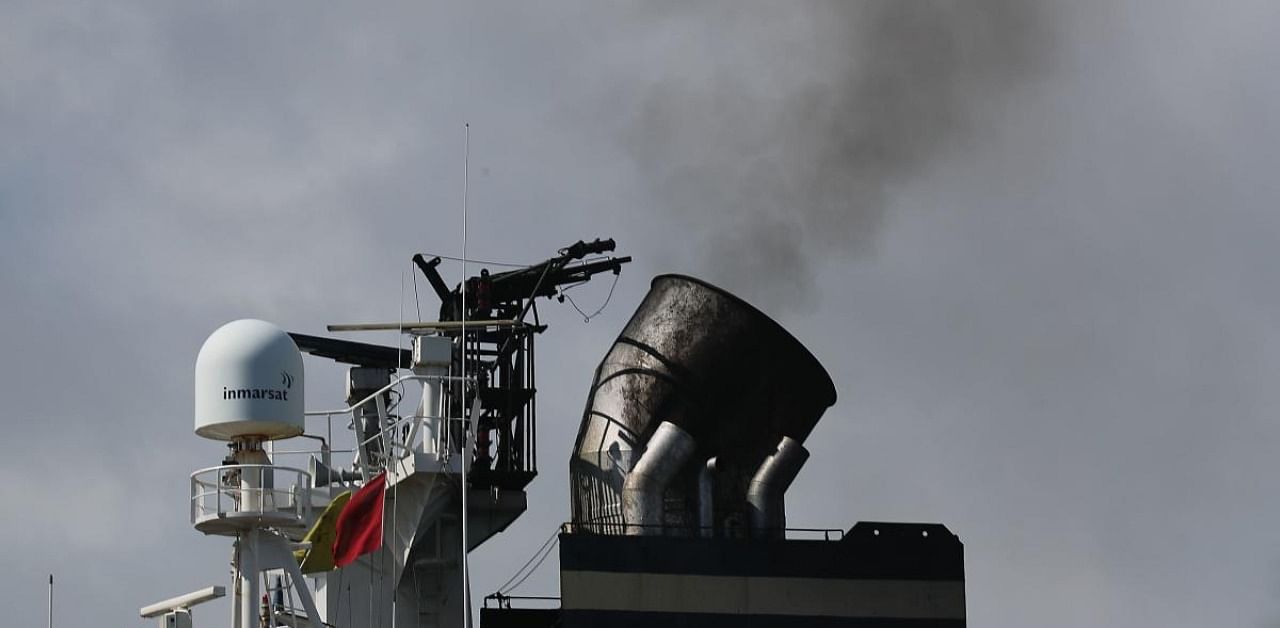
The European Union is set to kick start discussions next week on how quickly it will cut greenhouse gas emissions over the next decade.
Already well on the way to meeting its current climate target for 2030, the EU now wants to make that goal even more ambitious, to get on track for its flagship plan to reach net zero emissions by 2050.
The EU's executive Commission will propose a new 2030 emissions target next week, paving the way for talks between member states and European Parliament, which must approve the goal but are split over how ambitious it should be.
Here's how the new goal will be decided, how it holds up against climate science, and what it means for global efforts to curb climate change.
50% or 55%?
The Commission will propose one of two options for the new EU target – a 50% or a 55% reduction in emissions by 2030, against 1990 levels. The EU's current 2030 goal is a 40% cut.
It is expected to choose the 55% goal, which about 12 of the EU's 27 members say they support, most of them wealthier countries.
Poorer, eastern countries that rely on coal-fired power are more apprehensive, worried by the investments needed to achieve the goal, and the economic fallout for workers and companies in fossil fuel-heavy regions.
The EU plans to spend 550 billion euros on green goals by 2027, however researchers say more than 3 trillion euros of low-carbon investments would be needed to reach a 50% reduction target.
The Commission will publish an economic assessment of the new target next week. The new 2030 target will set the stage for reforms of EU policies including its carbon market, finance rules and taxation, to help deliver green goals.
... or 65%?
Lawmakers drafting the European Parliament position are eyeing an even more ambitious 60% or 65% emissions cut by 2030.
Parliament's environment committee will vote on Thursday on which 2030 target they want inserted into the EU's climate law. A full parliament vote will come later.
Ultimately, a lack of support from national governments makes 65% unlikely. But, by aiming high, lawmakers hope to ensure the goal gets watered down less when member states, the Commission and parliament seek a compromise on the final target.
What does the science say?
Globally, the world should cut greenhouse gas emissions by about 40%-50% by 2030 against 2010 levels, which works out to a 20%-35% reduction from 1990 levels, according to the UN Intergovernmental Panel on Climate Change (IPCC).
That goal is designed to limit global warming to 1.5 degrees Celsius above preindustrial times and avert the worst impacts from climate change. There isn't much wiggle room. Already, global temperatures have risen by more than 1 degree Celsius on average, and countries' current efforts would likely fail to avoid another 2 degrees Celsius of warming.
In Europe, scientists say the EU will struggle to reach its 2050 target of net zero emissions unless it achieves at least a 55% reduction from 1990 levels by 2030.
Europe is also expected to make steeper cuts than other regions in the world that are still developing. But calculating a "fair" share of emissions reductions for a developed economy like the EU is tricky.
"It is not a scientific question," said Imperial College London climate scientist Joeri Rogelj, a lead author on IPCC reports.
Paris Agreement pledges
Capitals outside of Europe will be watching the EU wrangle over its 2030 goal, which also serves as the bloc's pledge under the 2015 Paris Agreement on climate change.
Countries have been asked to update their 2015 pledges by the end of this year, but only 11 of the 197 signatories have done so. Currently, pledges by all countries worldwide would only limit warming to about 3 degrees Celsius - double what scientists say would be "safe".
With the United Nation's next global climate meeting postponed to next year, and a lack of climate leadership from the current US administration, observers are hoping an ambitious pledge by Europe will prod other countries to follow.
"One of the world's largest economies accelerating its course towards climate neutrality... will send a strong signal," said Laurence Tubiana, an architect of the Paris deal and France's former climate ambassador.